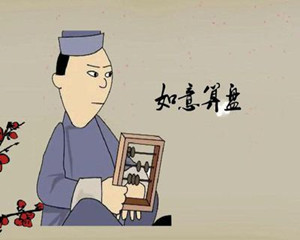古代寓言原是民间口头创作,文学体裁的一种。含有讽喻或明显教训意义的故事。它的结构简短。主人公可以是人,可以是动物,也可以是无生物。多借用比喻手法,使富有教训意义的主题或深刻的道理在简单的故事中体现,而还需要自己去理解,思考,这就是和西方寓言的不同之处。

《古代寓言·船主的如意算盘》
艾子见有人徒行,自吕良托舟人以趋彭门者,持五十钱遗舟师。师曰:“凡无赉而独裁者人百金。汝尚少半,汝当自此为我牵去彭门,可折半直也。”
——《艾子杂说》
The Boat-Owners Bright Idea
Once I saw a man travelling on foot at Luliang. He saw a boat, and offered the boat-owner fifty coins to take him to Pengmen.
"According to the usual rates," said the boat-owner, "a passenger making a trip without cargo should pay a hundred coins. Now you’re offering half, that’s not enough. But since I have to pay fifty coins for a man to tow my boat, I’ll take you for fifty if you agree to tow my boat to Pengmen!"
Miscellanea of Ai Zi
(杨宪益、戴乃迭 译)
更多精品翻译素材,敬请关注可可英语。











